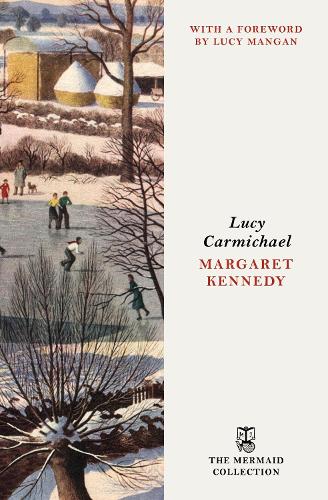
Lucy Carmichael
(Paperback)
Publishing Details
Lucy Carmichael
By (Author) Margaret Kennedy
Penguin Books Ltd
Penguin Books Ltd
18th November 2025
11th September 2025
United Kingdom
Classifications
General
Fiction
Narrative theme: Coming of age
Narrative theme: Identity / belonging
Rural communities
Physical Properties
Paperback
496
Width 129mm, Height 198mm, Spine 35mm
500g
Description
Celebrating 90 Years of Penguin Michael Joseph publishing with the Mermaid collection- Margaret Kennedy's Lucy Carmichael with a foreword by Lucy Mangan 'People seem to get over things, don't they I don't know how, but they do - ordinary people. I'm very ordinary, so I expect I shall do what they do.' Lucy Carmichael is jilted at the altar. But no matter. Her loving and kind family never liked her explorer fiance anyway. Instead of moping or falling into her supportive family's arms, however, Lucy abandons their suburban home. Heading for the country, she takes up a teaching position in the industrial town of Ravonsbridge. There, she finds solace in her work, in her new (rather gossipy) colleagues - and rediscovers her sensible young self. But if Lucy has, despite everything, kept her head - where lies her heart
Reviews
Praise for Margaret Kennedy * : *
She is not only a romantic but an anarchist, and she knows the ways of men and women very well indeed -- Anita Brookner
Kennedy was immensely popular in her heyday * Washington Post *
Margaret Kennedy's poised style, cool wit and skilful characterization kept her novels welcome for three decades * Cambridge Guide to Literature in English *
There is a wildness [in her mind]; a galloping, untutored spirit -- Beverley Nichols
Author Bio
Margaret Kennedy was born in London in 1896 and read History at Somerville College, Oxford in 1915 (alongside Winifred Holtby and Vera Brittain) where she began writing. In 1924, Kennedy's second novel The Constant Nymph became a worldwide bestseller which she adapted into a hit West End play starring Noel Coward (three different star-studded film versions followed). Described as 'superb' by Elizabeth Bowen, Kennedy wrote fifteen further prize-winning novels including The Feast in 1950, as well as literary criticism and a biography of Jane Austen. She died in 1967.
